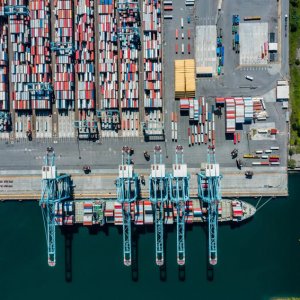The True Power of Data

STORY INLINE POST
“The Fourth Industrial Revolution has the potential of empowering individuals and communities, and creating new opportunities for economic, social, and personal development. But it also could lead to the marginalization of specific social groups, exacerbate inequality, create new security risks, and undermine human relationships.” Kalus Shwab, The Fourth Industrial Revolution.
When we talk about change, there is fear involved in what the repercussions will be. As we progress into the 21st century, it is important to be conscious of what we learned and what strengths we gained from industrial revolutions.
A revolution is a complete change that develops new paradigms, preferably shaped by a debate on how society, companies and governments relate. There has been more than one industrial revolution in our history and each has substantially changed the world:
-
The first, and of course the most famous, liberated humankind from animal power and made mass production possible with the creation of machines and factories to develop any number of products aiding everyday people’s life.
-
The second came with the modern scientific and electronic world, with mass production of goods based on electricity.
-
The third revolution, with the shift from analog to digital technology and electronics, Wi-Fi and the cloud, dramatically changed the way we work and engage with the planet as it has been digitally optimized while bringing us closer together worldwide.
Today, innovation and disruptive technologies are everywhere, and we are at the beginning of the Fourth Revolution: intelligence, technology, and connectivity through big data.
There are concerns about the future of labor, the way we are going to face new challenges, risks of inequality among individuals due to access to smart technologies, dehumanization with the integration of artificial intelligence into judicial matters, policing, voting systems and other scenarios. However, my personal view is that interconnectivity and smart automation gives us a great opportunity as humanity to continue progressing and finding better solutions to daily challenges, which represents a huge commitment from the private sector, government and society to be fast enough to adapt to what is coming.
The reality is that big data will continue to grow and will outlive the businesses that ignore it. Hence, what can we do now to take part in shaping the inevitable changes in our society and industries?
-
It is overwhelming to plan to manage, treat, and store all past and future data.
Well, you are not alone in this feeling. This fast-paced evolution can and will work for our industry. New techniques, tools, methodologies, and platforms are being developed every day. Be open to possibilities, understand what you need and will need, and a new solution will emerge to help manage all the information you now have.
-
We must learn to analyze and understand what the data is telling us at the right time. Gathering insights is key. There are many ways to store data but getting the correct information out of it could be more complex. Here is a good tip: work on visual ways to explore the data.
According to a 2013 report by Aberdeen Group, managers were 28 percent more likely to find timely information through visualization tools. It also encourages interaction with the data and it inspires us to ask more questions through insights. This could help find a better solution for each challenge the company faces. The two main goals of visual analysis are to change the data you are looking at and to change the way you look at it. This will open your mind and help answer questions your company needs in the correct way and the correct time.
-
Get going.
Jump into it, play with the data, analyze and explore it, ask questions, find tools, ask new questions, share insights, apply feedback from peers and ask again. The time is now and the more you get into the data, the more you will understand it.
Why is all this important? For our energy industry, big data is a great ally. At AES, our mission and responsibility is to implement and develop technology that keeps up with the energy demand while mitigating the impact on the environment. Getting the proper insights and answers to understand the industry as a whole is fundamental to change the future of energy, which is our company’s mission.
The time is now. If we work together as an industry, with the information each of us has, we can set a brighter and more exciting future. Personally, I can’t wait to see what this Fourth Revolution will bring to the world.
























